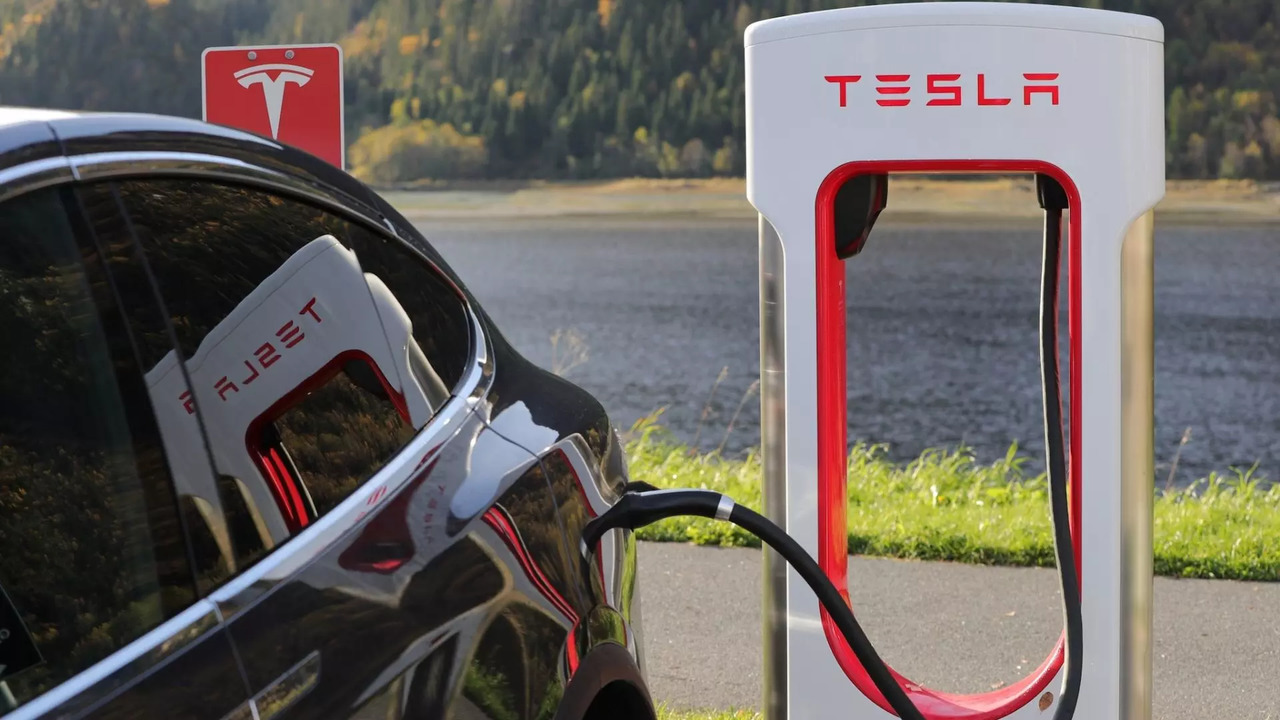Tesla had requested a recalculation of its tariff, which would be based on the specific subsidies.
He European Union has reduced its additional tariff planned for Tesla Imports of electric vehicles from China have fallen by more than half, the bloc’s executive said on Tuesday, following further research requested by the company.
He EUThe European Commission also revised its proposals for punitive tariffs on imports of Chinese-made electric vehicles in draft conclusions, in the EU’s highest-profile investigation into alleged Chinese subsidies, which has prompted threats of retaliation from Beijing.
It set a new reduced additional rate of 9% for Tesla, down from the 20.8% it had indicated in July, and said some Chinese companies in joint ventures with EU carmakers could also receive planned lower punitive tariffs on imports of Chinese-made electric vehicles.
The tariffs are on top of the standard 10% tariff the EU applies to car imports, a move the Commission says is aimed at levelling the playing field and countering what it says are unfair subsidies.
Tesla had requested a recalculation of its rate, which would be based on the specific subsidies the company had received. The Commission said on Tuesday it had verified that it received fewer subsidies from the Chinese government compared with the country’s electric vehicle makers that Brussels had investigated.
The Commission, which sets EU trade policy, said it still believed Chinese electric vehicle production had benefited from extensive subsidies and proposed tariffs on other companies of up to 36.3%, slightly lower than the initial planned maximum tariff of 37.6% set in July for companies that did not cooperate with the EU anti-subsidy investigation.
China’s Commerce Ministry said it firmly opposes the findings and is “very concerned” about them, vowing to take all necessary measures to protect Chinese companies.
The preliminary findings were based on “facts unilaterally determined by the EU side, not on mutually agreed facts,” the ministry said in a statement.
China hopes the EU will speed up exploration of appropriate solutions in a rational and pragmatic manner and take practical measures to prevent the escalation of trade frictions, he added. Beijing issued a challenge at the World Trade Organization earlier this month.
Tesla was among the companies cooperating with the EU investigation. It did not respond to a request for comment on Tuesday. The Commission said three companies it had examined would receive provisional duties slightly lower than those indicated in July. China’s BYD would face a rate of 17.0% compared with 17.4% applied in July, Geely 19.3% compared with 19.9% and SAIC 36.3% compared with 37.6%.
Chinese companies that are part of joint ventures with EU producers could also be entitled to the lower tariffs provided for the Chinese companies in which they are integrated, the Commission said.
Volkswagen’s SEAT subsidiary now expected to receive a lower tariff of 21.3% on its Cupra Tavascan, which is produced by a joint venture in China majority-owned by the German carmaker, a source close to the matter told Reuters.
A SEAT spokesman said it was working with the VW Group to further reduce the impact of the tariffs.
BMW said in a statement that its joint venture in China that produces the electric Mini was also classified as a “cooperating company”, qualifying it for a lower tariff of 21.3%, down from the 37.6% Brussels had indicated last month.
The planned tariffs could become the EU’s final measure against Chinese-made electric vehicles once its investigation is concluded in about two months. Interested parties have until 30 August to submit their comments on the Commission’s findings.
The proposed final tariffs will be put to a vote in the 27 EU states. They will be implemented unless a qualified majority of 15 EU members representing 65% of the EU population votes against them. It is a high hurdle that is rarely met, although it is a politically charged dossier. In a consultative vote in July, 12 EU members supported the provisional tariffs, four voted against and 11 abstained, the sources said. The final tariffs would have to be implemented by Oct. 30.
Disclaimer:
The information contained in this post is for general information purposes only. We make no representations or warranties of any kind, express or implied, about the completeness, accuracy, reliability, suitability or availability with respect to the website or the information, products, services, or related graphics contained on the post for any purpose.
We respect the intellectual property rights of content creators. If you are the owner of any material featured on our website and have concerns about its use, please contact us. We are committed to addressing any copyright issues promptly and will remove any material within 2 days of receiving a request from the rightful owner.

